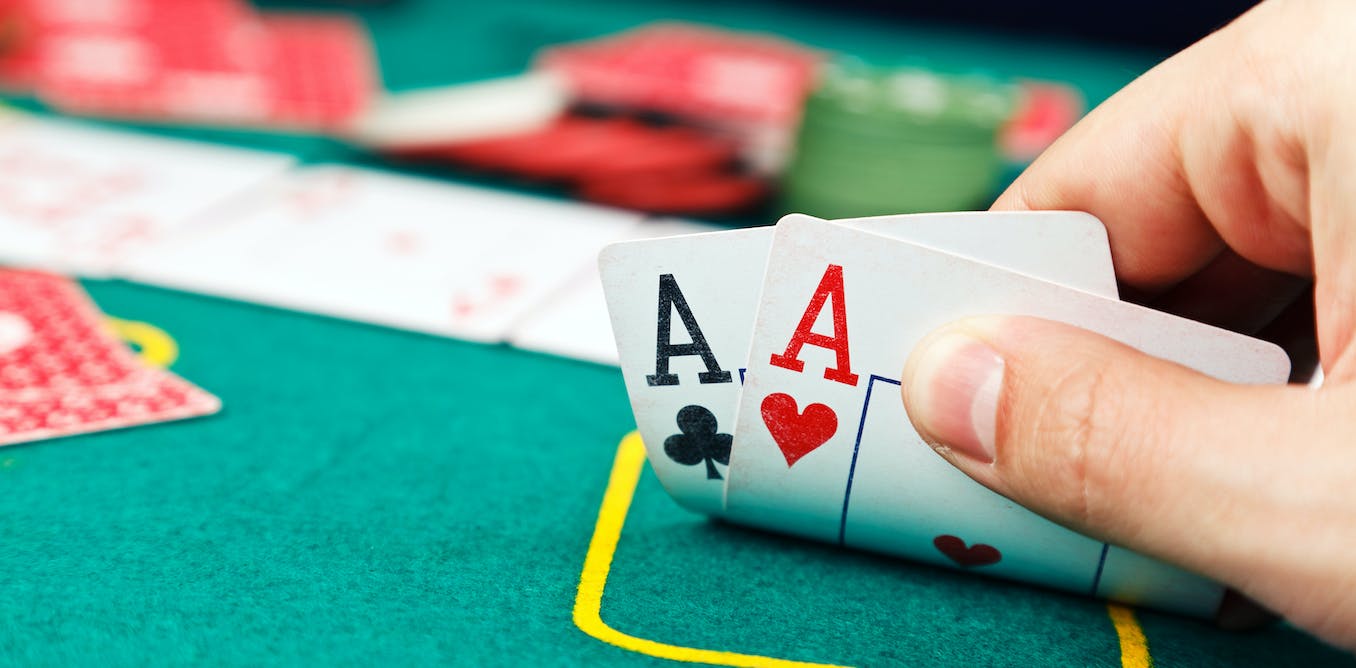A Beginner’s Guide to Poker

Poker is a card game where players place chips into a pot in order to bet on their hands. This is a game of skill and strategy, with the winner being the player with the best hand. There is a large element of luck involved in poker, but the overall expectation of a player is determined by actions chosen on the basis of probability, psychology, and game theory.
To begin playing poker, a player must first “ante” something into the pot (the amount varies by game). Then they will be dealt two cards which can only be seen by them. After the antes have been placed, each player has a chance to call or raise any bets made before them. Once betting has completed, the dealer will put a fourth community card on the board which everyone can use. This is called the turn. After the turn, another round of betting takes place.
After all the betting is done, each player must show their cards and the highest hand wins. The cards must be ranked according to their suit and rank (Ace high beats five of a kind, for example). In addition, the highest pair wins (aces beats pairs, queens beats jacks, etc).
One of the most important aspects of poker is reading other players. This is done by watching for tells. These are body language signals that a player may be holding a strong or weak hand. Some common tells include a wagging finger, a hand placed over the mouth, blinking excessively, and a flaring nostril.
Many beginner poker players stick to only playing strong starting hands. This is a solid strategy for beginners, but to be a successful winner you must improve your range and play more hands. This will make you more profitable by allowing you to win more pots and not just donate money to players who are better than you.
The best way to learn more about poker is to study a specific aspect of the game each week. Too many players try to learn everything at once, and they fail to comprehend anything. For instance, they watch a cbet video on Monday, then read a 3bet article on Tuesday, and listen to a podcast about tilt management on Wednesday.
If you want to become a good poker player, you should start by playing a low limit game. This will allow you to get a feel for the game and not risk too much money. Moreover, you can practice your skills versus players who are not as skilled as you are.
To be a good poker player, you need to know the official rules and the basic strategy tips. It is also essential to understand the different poker variants and their odds. It is important to keep records of your gambling winnings and pay taxes on them. This will help you avoid legal troubles. Besides, keeping records will help you manage your finances better and ensure that you do not overspend.